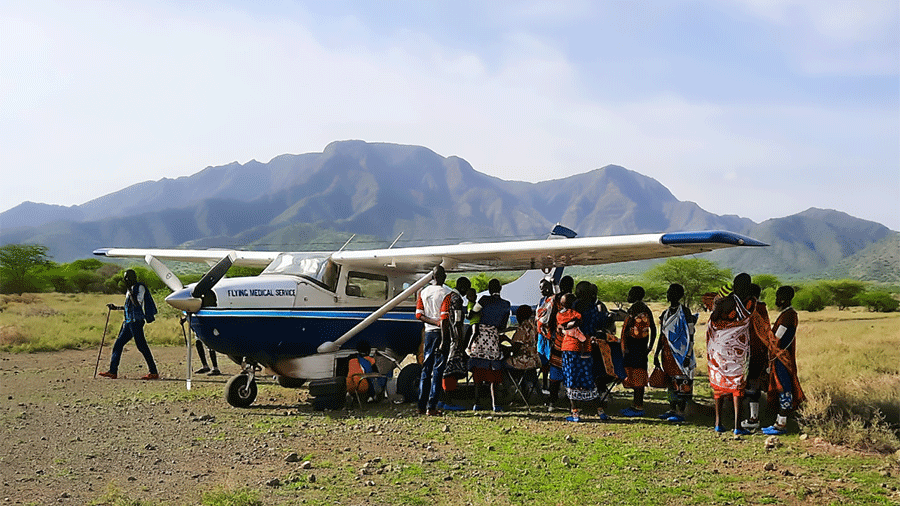
Tanzania
Global Humanitarian Network Partner:
Flying Medical Service
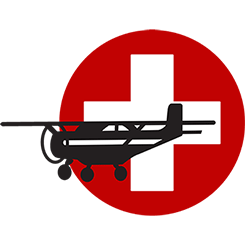
The Flying Medical Service (FMS) model is highly significant in providing the Maasai people with access to preventative health care while also preserving their traditional lifestyle. Wings of Hope, in collaboration with FMS, has been supporting this model for more than three decades by providing planes, parts and annual inspections. The flying medical clinics operate biweekly, and they visit 25 Maasai settlements, offering essential health care services such as vaccinations, pre-natal and infant care, and general health screenings during three-day clinics.
FMS’s ability to access remote communities by safely navigating challenging airstrips makes their services highly valuable to the people they serve in Tanzania. Each community is responsible for maintaining its airstrip, and the team follows a predetermined schedule when flying into each community, ensuring that the populace is informed of the timing of the clinics.
United Republic of Tanzania
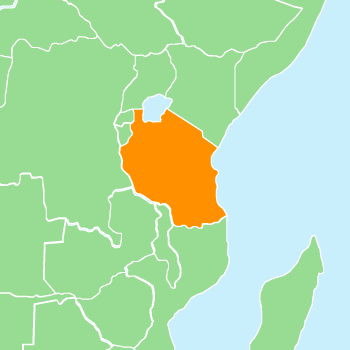
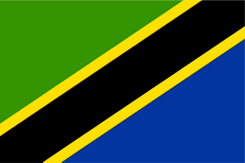
Geography:
Tanzania is situated in East Africa along the eastern coast of the African continent. It shares borders with eight countries: Kenya and Uganda to the north, Rwanda, Burundi, and the Democratic Republic of the Congo to the west, Zambia and Malawi to the southwest, and Mozambique to the south.
To the east, Tanzania is bounded by the Indian Ocean, which provides the country with a long coastline extending over 1,424 kilometers (885 miles). This coastline includes the islands of Zanzibar and Pemba, which are semi-autonomous regions of Tanzania.
Tanzania’s location near the equator gives it a tropical climate, and its varied geography encompasses coastal plains, the Great Rift Valley, highlands, and the iconic Mount Kilimanjaro, Africa’s highest peak. The diverse landscapes and proximity to the Indian Ocean contribute to Tanzania’s rich biodiversity.
History: Tanzania’s history is as old as the history of mankind
The history of human habitation in Tanzania goes back almost 2 million years, and fossils found at Olduvai Gorge now stand among the most important artifacts of the origins of our species.
Today, Tanzania is home to several indigenous groups, including the Maasai and Chaga. During the late 19th century, the region was ruled by the German Empire until the end of World War I, after which it became a British mandate. The British introduced a system of indirect rule and focused on developing cash crops such as sisal, cotton and coffee.
As nationalist movements began to emerge in the region, the Tanganyika African National Union (TANU) was established in 1954, eventually leading the country to gain independence from British colonial rule in 1961. Tanzania later united with Zanzibar in 1964, forming the United Republic of Tanzania. Julius Nyerere, who led the country at that time, implemented socialist policies known as “Ujamaa.” These policies resulted in the nationalization of key industries and collective farms, but also caused economic stagnation and shortages of basic goods.
After Nyerere’s presidency, Tanzania underwent several political and economic changes, gradually moving away from socialist policies and liberalizing the economy. Multi-party elections have been held since 1992. Despite facing challenges like poverty and corruption, Tanzania has made significant progress in education and health care. The country’s diverse economy is based on key sectors like agriculture, tourism, mining and manufacturing. In recent years, Tanzania has made significant discoveries of natural gas and oil, which could potentially transform its economy.
The history of Tanzania is characterized by a legacy of resistance against colonialism, a tradition of Pan-Africanism.
The Maasai: Warriors of Tradition, Guardians of the African Spirit
As an indigenous pastoralist community, the Maasai rely on their ancestral lands to maintain their traditional way of life, which centers around their cattle. Maasai depend on cattle for both nutrition and socio-economic status. Disruption to their lifestyle and culture can lead to adverse health outcomes, and thus the preservation of their way of life is crucial for their overall well-being. The work of FMS is of great significance in this context, as their model provides preventative health care services to the Maasai while preserving their cultural heritage. By bringing medical services directly to the communities, FMS supports the preservation of the Maasai culture while simultaneously improving their health outcomes. The Maasai’s struggle for their land rights and cultural survival in the face of conservation initiatives remains a complex and ongoing issue in Tanzania. However, the FMS model serves as an important example of how health care providers can work with indigenous communities to promote health and well-being while respecting their rights and traditions.
Tanzania is confronted with a range of challenges due to a lack of resources and insufficient infrastructure, which significantly impact the country’s health care system. The country suffers from a shortage of medical personnel, with a ratio of only 0.04 doctors per 1,000 people, which is one of the lowest in the world. The inadequate supply of nurses and other health care workers further compounds the problem, limiting access to essential health care services. Moreover, many health facilities in Tanzania are understaffed and do not have access to essential medical equipment and supplies, exacerbating the issue. Access to health care is particularly problematic in rural areas of Tanzania, where people may have to travel long distances to reach health care facilities, which is often expensive and challenging. By navigating the complexities of modern healthcare and incorporating traditional wisdoms, the Maasai community strives for a future where their unique heritage and well-being can coexist harmoniously. The Tanzanian government has collaborated with international organizations to enhance maternal and child health and address infectious diseases like malaria and HIV/AIDS. However, substantial improvements are necessary to address the systemic challenges and ensure that all Tanzanians have access to quality health care services.
In 2022, Tanzania had a significant portion of its population living in extreme poverty, with around 4% of the world’s extremely poor residing in the country. This calculation was based on the global poverty threshold of 1.90 U.S. dollars per day.
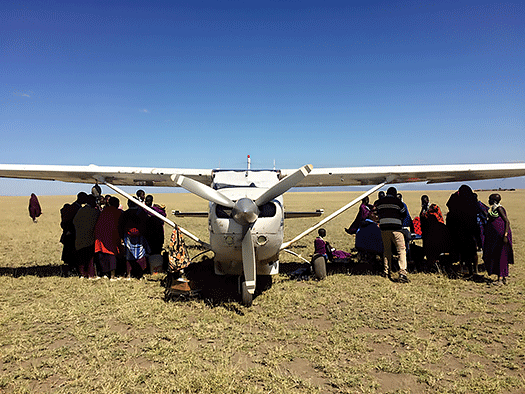
(Per Capita)
Tanzania
Worldwide
Disease (by percentage %)
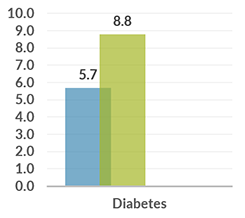
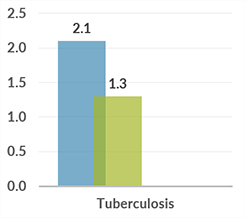
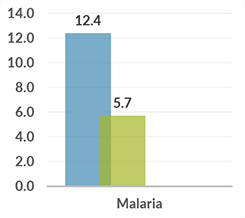
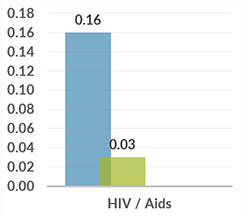
The number of people suffering from diabetes refers only to inhabitants aged between 20 and 79 years.
Child Vaccine (by percentage %)
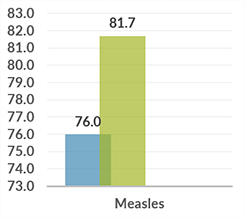
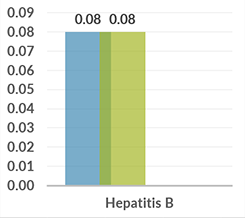
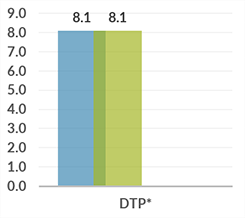
Neserian
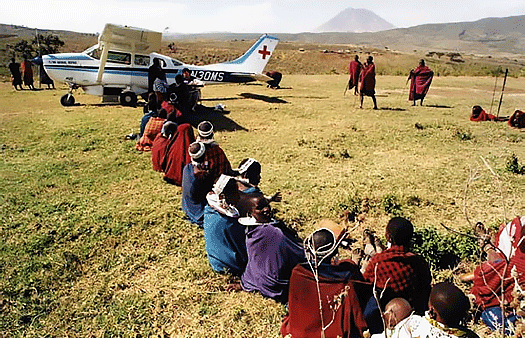
Written by Pat Patten, Director of Flying Medical Service
A 30-year-old Maasai woman named Neserian came two days ago to my door. She is kind, and she is blind. She was led by her 11-year-old son who should have been in school. Neserian had taken local medicine because her eyes bothered her, and she believed she had been bewitched. She went blind from the “medicine” she was given by the witch doctor. Yes, there are witches and witch doctors.
In four days, she will go to the nearest place where they can do the type of eye surgery she needs. Hopefully, she is eligible for corneal transplants in both eyes. If they can be done, it will cost about $450 for each operation. It would take her a year and a half to earn enough money for one eye. Without generous donors, she would live with her blindness. Thanks for a woman’s chance to see you again!
Issaya
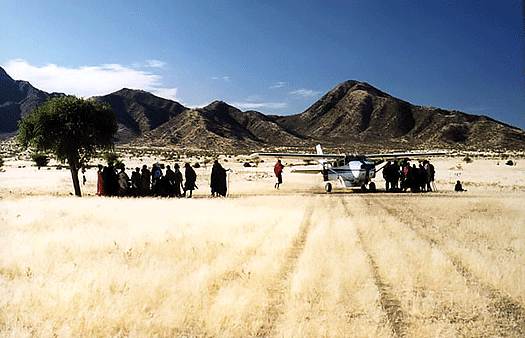
During one of Flying Medical Service’s outreach clinics, the team met Issaya, a 5-year-old boy with a condition known as “genu valgum,” which caused his legs to be distorted and his knees to touch each other. As this condition was not treatable with the resources available, the team transported the patient to Arusha, where he would receive further assessment and treatment from orthopedic doctors.
Issaya’s story is just one example of the many lives FMS has impacted over the years. It is a reminder of the important work they do and the profound impact it can have on people’s lives. The team’s dedication, commitment and passion for their work have changed the lives of many people, like Issaya, who otherwise would not have had access to lifesaving medical care.
History: Tanzania’s history is as old as the history of mankind
The history of human habitation in Tanzania goes back almost 2 million years, and fossils found at Olduvai Gorge now stand among the most important artifacts of the origins of our species.
Today, Tanzania is home to several indigenous groups, including the Maasai and Chaga. During the late 19th century, the region was ruled by the German Empire until the end of World War I, after which it became a British mandate. The British introduced a system of indirect rule and focused on developing cash crops such as sisal, cotton and coffee.
As nationalist movements began to emerge in the region, the Tanganyika African National Union (TANU) was established in 1954, eventually leading the country to gain independence from British colonial rule in 1961. Tanzania later united with Zanzibar in 1964, forming the United Republic of Tanzania. Julius Nyerere, who led the country at that time, implemented socialist policies known as “Ujamaa.” These policies resulted in the nationalization of key industries and collective farms, but also caused economic stagnation and shortages of basic goods.
After Nyerere’s presidency, Tanzania underwent several political and economic changes, gradually moving away from socialist policies and liberalizing the economy. Multi-party elections have been held since 1992. Despite facing challenges like poverty and corruption, Tanzania has made significant progress in education and health care. The country’s diverse economy is based on key sectors like agriculture, tourism, mining and manufacturing. In recent years, Tanzania has made significant discoveries of natural gas and oil, which could potentially transform its economy.
The history of Tanzania is characterized by a legacy of resistance against colonialism, a tradition of Pan-Africanism.
The Massai: Warriors of Tradition, Guardians of the African Spirit
As an indigenous pastoralist community, the Maasai rely on their ancestral lands to maintain their traditional way of life, which centers around their cattle. Maasai depend on cattle for both nutrition and socio-economic status. Disruption to their lifestyle and culture can lead to adverse health outcomes, and thus the preservation of their way of life is crucial for their overall well-being. The work of FMS is of great significance in this context, as their model provides preventative health care services to the Maasai while preserving their cultural heritage. By bringing medical services directly to the communities, FMS supports the preservation of the Maasai culture while simultaneously improving their health outcomes. The Maasai’s struggle for their land rights and cultural survival in the face of conservation initiatives remains a complex and ongoing issue in Tanzania. However, the FMS model serves as an important example of how health care providers can work with indigenous communities to promote health and well-being while respecting their rights and traditions.
Tanzania is confronted with a range of challenges due to a lack of resources and insufficient infrastructure, which significantly impact the country’s health care system. The country suffers from a shortage of medical personnel, with a ratio of only 0.04 doctors per 1,000 people, which is one of the lowest in the world. The inadequate supply of nurses and other health care workers further compounds the problem, limiting access to essential health care services. Moreover, many health facilities in Tanzania are understaffed and do not have access to essential medical equipment and supplies, exacerbating the issue. Access to health care is particularly problematic in rural areas of Tanzania, where people may have to travel long distances to reach health care facilities, which is often expensive and challenging. By navigating the complexities of modern healthcare and incorporating traditional wisdoms, the Maasai community strives for a future where their unique heritage and well-being can coexist harmoniously. The Tanzanian government has collaborated with international organizations to enhance maternal and child health and address infectious diseases like malaria and HIV/AIDS. However, substantial improvements are necessary to address the systemic challenges and ensure that all Tanzanians have access to quality health care services.
In 2022, Tanzania had a significant portion of its population living in extreme poverty, with around 4% of the world’s extremely poor residing in the country. This calculation was based on the global poverty threshold of 1.90 U.S. dollars per day.

(Per Capita)
Tanzania
Worldwide
Disease (by percentage %)




The number of people suffering from diabetes refers only to inhabitants aged between 20 and 79 years.
Child Vaccine (by percentage %)



Neserian

Written by Pat Patten, Director of Flying Medical Service
A 30-year-old Maasai woman named Neserian came two days ago to my door. She is kind, and she is blind. She was led by her 11-year-old son who should have been in school. Neserian had taken local medicine because her eyes bothered her, and she believed she had been bewitched. She went blind from the “medicine” she was given by the witch doctor. Yes, there are witches and witch doctors.
In four days, she will go to the nearest place where they can do the type of eye surgery she needs. Hopefully, she is eligible for corneal transplants in both eyes. If they can be done, it will cost about $450 for each operation. It would take her a year and a half to earn enough money for one eye. Without generous donors, she would live with her blindness. Thanks for a woman’s chance to see you again!
Issaya

During one of Flying Medical Service’s outreach clinics, the team met Issaya, a 5-year-old boy with a condition known as “genu valgum,” which caused his legs to be distorted and his knees to touch each other. As this condition was not treatable with the resources available, the team transported the patient to Arusha, where he would receive further assessment and treatment from orthopedic doctors.
Issaya’s story is just one example of the many lives FMS has impacted over the years. It is a reminder of the important work they do and the profound impact it can have on people’s lives. The team’s dedication, commitment and passion for their work have changed the lives of many people, like Issaya, who otherwise would not have had access to lifesaving medical care.
Flying Medical Service's Lifesaving Work in Tanzania
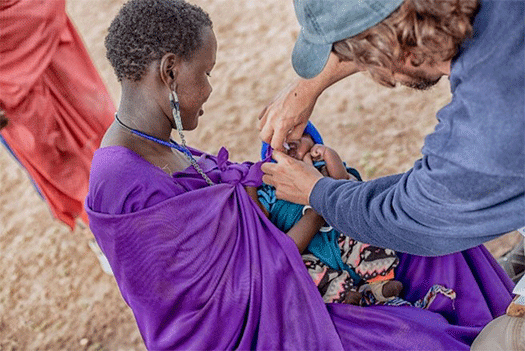
FMS has continuously served some of the most geographically isolated regions of Tanzania since 1983. During that time, FMS has seen more than 662,000 patients, vaccinated over 363,000 children, conducted more than 121,000 prenatal consultations and provided medical treatment to more than 363,000 patients. FMS’s team of dedicated doctors, nurses and health care professionals work tirelessly to provide essential medical care to people living in isolated communities where getting the care they need can be a matter of life and death.
FMS works in partnership with the communities served and in collaboration with local hospitals and their staff to ensure smooth operation of the village airstrips, clinics and the overall function of FMS. This allows the team to reach those in need quickly and efficiently, even in the most difficult to reach areas.








